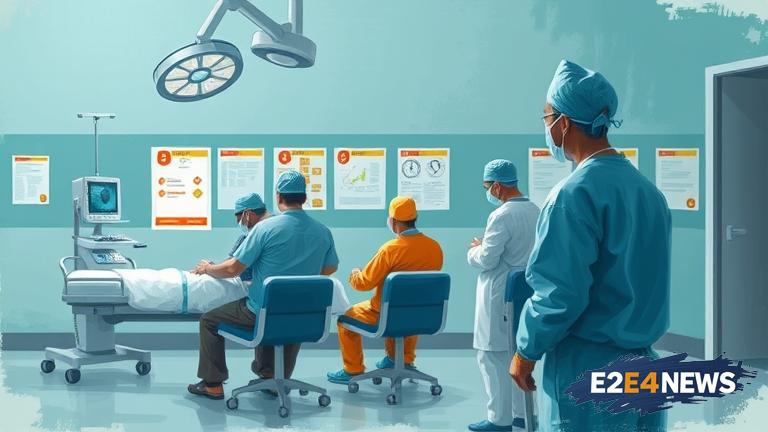The All India Institute of Medical Sciences (AIIMS) in Delhi, one of the premier medical institutions in the country, is grappling with a severe shortage of resources, including operating theaters, equipment, and staff. As a result, patients seeking surgery at AIIMS are being forced to wait for an average of 2 years, a situation that is causing immense distress and uncertainty among those in need of medical attention. The waiting period for surgeries at AIIMS has been steadily increasing over the years, with the hospital struggling to cope with the overwhelming demand for its services. Despite being one of the largest and most well-equipped hospitals in the country, AIIMS is facing a severe crunch in terms of infrastructure and human resources. The hospital has only 15 operating theaters, which are woefully inadequate to meet the demands of the thousands of patients who flock to AIIMS every year. Furthermore, the hospital is also facing a shortage of specialized equipment, including MRI and CT scan machines, which are essential for conducting complex surgeries. The shortage of staff, including surgeons, anesthetists, and nurses, is also exacerbating the problem, with many doctors and nurses leaving AIIMS to join private hospitals that offer better pay and working conditions. The 2-year waiting period for surgeries at AIIMS is not only causing physical and emotional distress to patients but also leading to a significant deterioration in their condition, making it even more challenging for doctors to treat them effectively. Many patients are being forced to seek alternative treatment options, including private hospitals, which are often expensive and unaffordable for those from lower-income backgrounds. The situation is particularly dire for patients who require urgent medical attention, including those suffering from life-threatening conditions such as cancer, heart disease, and neurological disorders. The Indian government has been criticized for its failure to address the shortage of resources at AIIMS, despite the hospital being a premier medical institution in the country. The government has been accused of neglecting the healthcare sector, with many hospitals, including AIIMS, facing severe shortages of staff, equipment, and infrastructure. The situation at AIIMS is a reflection of the broader healthcare crisis in India, where millions of people lack access to quality medical care, particularly in rural and underserved areas. The Indian healthcare system is facing numerous challenges, including a shortage of doctors, nurses, and other healthcare professionals, as well as inadequate infrastructure and equipment. The government has launched several initiatives to address these challenges, including the Ayushman Bharat scheme, which aims to provide health insurance coverage to millions of poor and vulnerable families. However, much more needs to be done to address the systemic issues plaguing the healthcare sector, including the shortage of resources at premier institutions like AIIMS. The 2-year waiting period for surgeries at AIIMS is a wake-up call for the government to take urgent action to address the crisis in the healthcare sector. The government needs to invest more in healthcare infrastructure, including hospitals, equipment, and staff, to ensure that patients receive timely and quality medical care. Additionally, the government needs to take steps to retain doctors and nurses at public hospitals, including AIIMS, by offering them better pay and working conditions. The situation at AIIMS is a reminder that healthcare is a fundamental right, and it is the responsibility of the government to ensure that all citizens have access to quality medical care. The Indian government needs to take a holistic approach to address the healthcare crisis, including increasing funding for healthcare, improving infrastructure, and ensuring that all citizens have access to quality medical care. The 2-year waiting period for surgeries at AIIMS is a stark reminder of the challenges facing the healthcare sector in India, and it is imperative that the government takes urgent action to address these challenges and ensure that patients receive the medical care they deserve.
